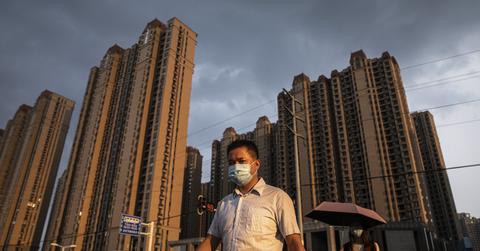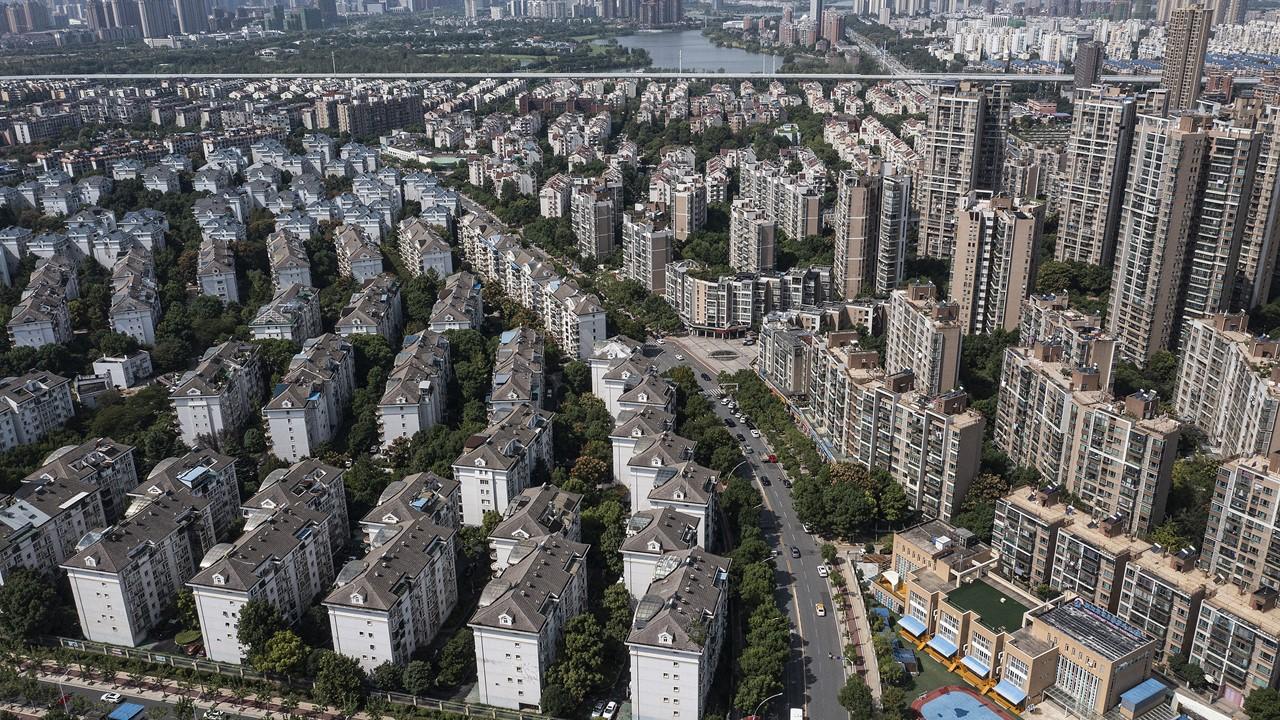What Happens If Evergrande Defaults? Widespread Implications
Evergrande’s missed interest payments and massive debt pile have sparked concerns about its potential impact. What happens if Evergrande defaults?
Oct. 5 2021, Published 10:55 a.m. ET

In September, Chinese real estate giant Evergrande missed coupon payments on two dollar bond tranches. This triggered concerns regarding its financial state and possible default. After Evergrande, two other Chinese property firms also missed debt payments. Fears have been rising that Evergrande’s problems could spread through China, which could also have an impact on global financial markets.
After falling by more than 80 percent this year, Evergrande shares have now been suspended pending an announcement about a major transaction. What happens if Evergrande defaults?
China’s property developer Evergrande Group has amassed a mountain of debt. Together with its subsidiaries, Evergrande owes at least $305 billion. In general, the Chinese property development sector is riddled with excessive debt since it followed growth at any cost strategy. This isn't the first time that debt concerns have been raised for Evergrande. In 2015, a crisis in the Chinese housing market put Evergrande at risk.

How Evergrande reached this situation?
The situation started spiraling when China introduced rules in 2020 that limited the debt property developers can take. This caused Evergrande to offer its properties at large discounts to help with cash flows. Banks also stopped giving new loans to buyers of some of Evergrande’s projects, which made the situation worse. The company received several credit downgrades in the last few months.
What if Evergrande defaults?
Evergrande’s problems are big and they could have a ripple effect through a lot of sectors and economies. Many firms get impacted if one business fails and Evergrande’s sheer size means that there are many other businesses associated with it. Firms like materials suppliers as well as construction and design firms will all be impacted negatively if Evergrande defaults.
The most far-reaching consequence could be due to the money the firm owes to nearly 128 banks and 121 non-banking institutions. A default by Evergrande could lead to a credit crunch in the market.
Does Evergrande have a way out?
According to Chinese media reports, Evergrande’s rival Hopson Development is set to buy a 51 percent stake in Evergrande Real Estate for around $5 billion. Evergrande’s collapse could be the biggest test China’s financial system has faced in years. However, the $5 billion it will likely get from a stake sale could cover its near-term offshore repayments. Even a fire sale of its assets would trigger a general negative sentiment regarding China’s property sector.
Fitch has cut another property developer Sinic’s default rating to "C" from "CCC" after the company missed interest payments. Another Chinese homebuilder Fantasia Holdings also failed to make an international market debt repayment on time. The contagion could already be spreading to others in the property sector.
According to many analysts, since Evergrande is too big, the Chinese government probably won't let it fail. A managed restructuring could also be one of the ways out of this scenario where other developers get a share in Evergrande’s properties as they take over its uncompleted projects.
As the world waits for a resolution to this situation, global markets are already shaky due to broader investor concerns. A slowdown in the Chinese economy will ripple across markets. Since China is the largest consumer of many commodities, the basic materials sector might lose a lot along with a range of other industries.
